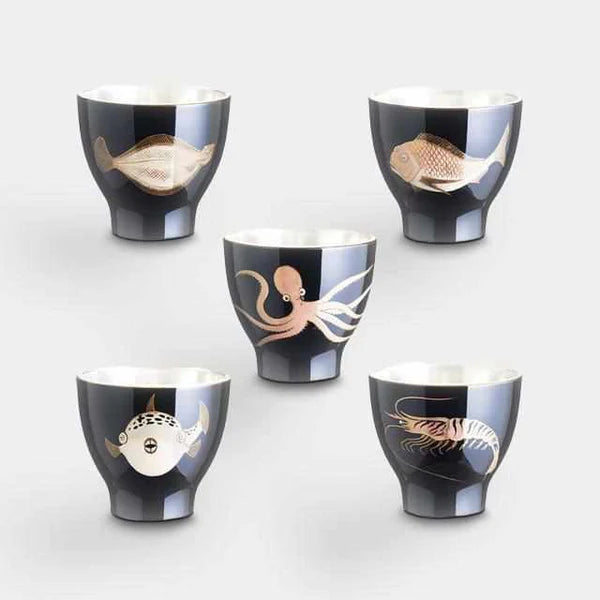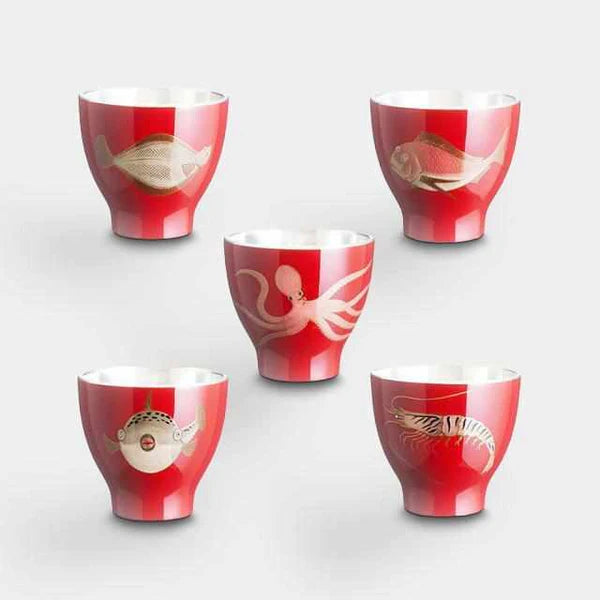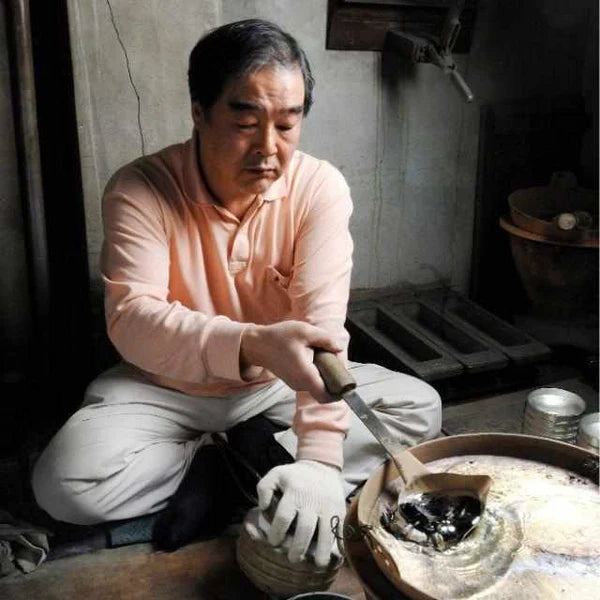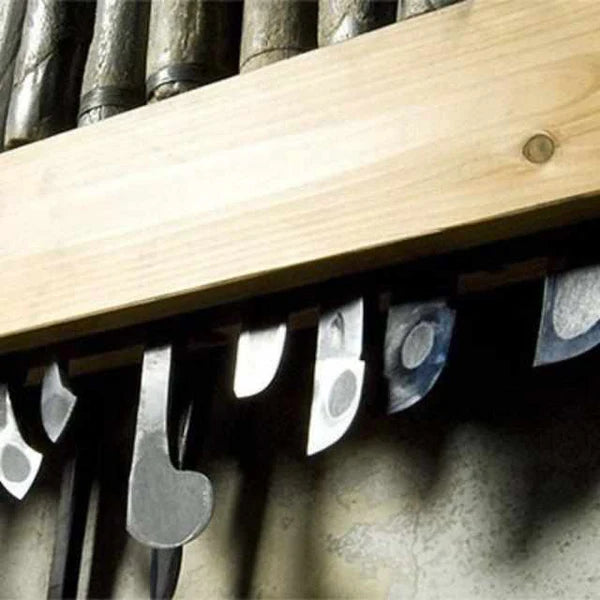Free shipping included
Wajima Lacquer Seafood Cup Sets | Osaka Naniwa Pewter Ware (5 Designs)
Wajima Lacquer Seafood Cup Sets | Osaka Naniwa Pewter Ware (5 Designs)
- Delivery: 7 to 90 days
Couldn't load pickup availability
This five-piece seafood cup set, crafted by Osaka Suzuki, combines the heritage of Osaka Naniwa pewterware with the refined Wajima lacquer finish. Each small cup is decorated with a different sea creature: flatfish, sea bream, octopus, pufferfish, and shrimp.
The designs carry symbolic meaning in Japanese culture:
Flatfish (Hirame): Represents adaptability and balance.
Sea Bream (Tai): Associated with good fortune and celebration, often served at festivals.
Octopus (Tako): Symbol of intelligence, flexibility, and mystery.
Pufferfish (Fugu): A creature of resilience, often linked to strength and endurance.
Shrimp (Ebi): Sign of longevity and vitality, with its curved body resembling an elder’s posture.
These small cups, with a capacity of 90 ml (3.04 oz), are suitable for fine drinks. Their tin interior enhances flavor by softening the taste of heavy drinks, while the lacquer exterior offers durability and elegance. Available in black or vermilion, both colorways highlight the intricate seafood motifs.
Each set comes in a paulownia wood box, making it an excellent gift and collectible item.
Specifications
Manufacturer: Osaka Suzuki
Origin: Osaka, Japan
Technique: Osaka Naniwa Pewter Ware with Wajima lacquer
Material: Tin with lacquer finish; includes paulownia box
Size: 5.9 cm (φ2.32") x 5.5 cm (H2.16")
Capacity: 90 ml (3.04 oz)
Motifs: Flatfish, Sea Bream, Octopus, Pufferfish, Shrimp
Variants: Black or Vermilion set
Delivery Time: 1-2 weeks (2-4 weeks if out of stock)
Symbolism & Cultural Value
This set celebrates Japan’s deep connection to the sea. Seafood motifs like tai (sea bream) are commonly associated with auspicious events, while creatures such as shrimp and octopus appear in traditional art and seasonal cuisine. Used during celebrations, these cups embody both good fortune and longevity, making them meaningful beyond their practical function.
They reflect the Japanese belief that drinkware should enhance not only the taste of drinks but also the experience of sharing it.
Share














